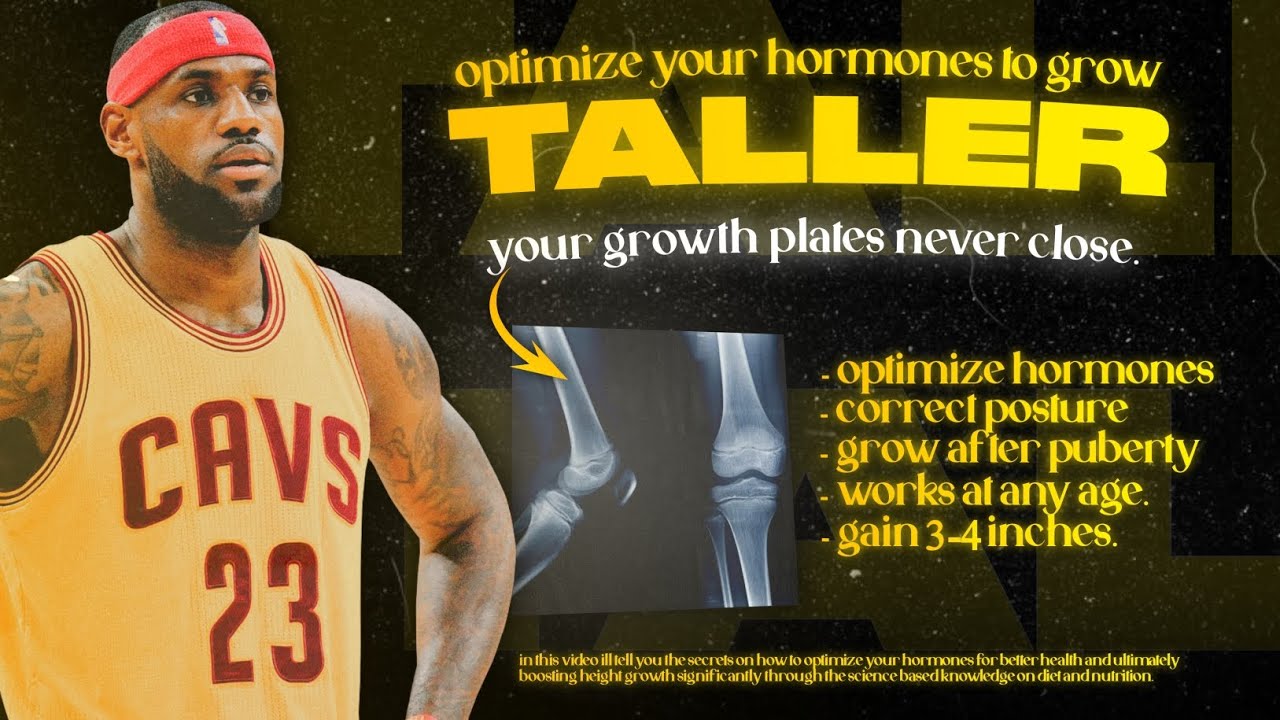Does Sprinting Really Make You Taller? (Science Based)
Summary
TLDRIn this video, the speaker evaluates the effects of sprinting on key hormones like testosterone, IGF-1, and GH, challenging common claims that sprinting can increase bone mass or height. Reviewing studies on testosterone, cortisol, and growth hormone secretion, the speaker concludes that while sprinting can cause temporary hormonal changes, these effects are not sustained enough to significantly impact bone growth or height development. Instead, long-term nutrition and lifestyle changes are presented as the more crucial factors for growth and physical development. The video also promotes a community and courses aimed at maximizing height and facial development.
Takeaways
- 😀 Sprinting does not significantly increase bone mass or height, despite claims by some influencers about raising IGF-1 and GH.
- 😀 Testosterone levels temporarily increase immediately after sprinting, but they dip below baseline after two hours and return to baseline after 24 hours.
- 😀 Cortisol decreases significantly during and after sprinting, with levels staying low for hours post-activity.
- 😀 The short-term surge in testosterone after sprinting is not sustained enough to support claims of long-term growth effects.
- 😀 Sprinting has a short-term impact on growth hormone (GH), but it remains elevated for only around two hours, mainly for recovery purposes.
- 😀 Sprinting does not significantly affect IGF-1 levels or its bioactivity, contrary to some claims that sprinting boosts IGF-1.
- 😀 A 30-second sprint results in significantly higher GH secretion than a 6-second sprint, but neither leads to long-term growth effects.
- 😀 Studies show that sprinting reduces ghrelin, the hunger hormone, which may lead to decreased hunger temporarily.
- 😀 The evidence does not support the idea that sprinting directly contributes to increased height or bone growth.
- 😀 The impact of sprinting on hormones like testosterone and GH is short-lived, with no sustained effects that would promote long-term growth.
- 😀 Long-term hormone regulation and bone growth are more influenced by factors like nutrition and metabolic state than by sprinting alone.
Q & A
What is the focus of the studies discussed in the video?
-The video focuses on the effects of sprinting on testosterone, IGF-1, and growth hormone (GH), particularly in relation to height and bone growth.
How does sprinting affect testosterone and cortisol levels according to the first study?
-The first study shows that sprinting causes an immediate increase in testosterone levels, but after two hours, testosterone levels dip below baseline, while cortisol levels decrease and remain lower for a few hours.
What does the data suggest about sustained testosterone increase after sprinting?
-The data suggests that sprinting does not lead to a sustained increase in testosterone. After an initial spike, testosterone levels dip below baseline after two hours, indicating that sprinting doesn't significantly affect testosterone long-term.
What were the findings related to human growth hormone (GH) in sprinting studies?
-The studies show that sprinting significantly increases GH secretion, with a notable peak after sprinting. The increase in GH lasts for about two hours, mainly aiding recovery, not bone growth.
Does sprinting affect IGF-1 levels according to the studies discussed?
-No, sprinting does not alter IGF-1 concentrations or its bioactivity, despite the common belief that sprinting boosts IGF-1 levels.
What is the role of cortisol in sprinting, based on the study's results?
-Cortisol decreases after sprinting and remains lower for several hours. This suggests sprinting may help reduce stress hormone levels in the body for a short period, though it doesn't contribute to bone growth or height increase.
Can sprinting increase height or bone growth according to the research?
-The studies do not provide evidence that sprinting contributes to increased height or bone growth. The increase in GH and testosterone is short-lived, not sustained enough to affect long-term growth.
How does sprinting affect hunger and satiety hormones like ghrelin?
-Sprinting reduces ghrelin, a hormone that stimulates hunger. This suggests sprinting might help suppress appetite temporarily after exercise.
What is the significance of the study involving high-intensity exercise and ghrelin concentrations?
-The study highlights that high-intensity exercise, like sprinting, reduces ghrelin levels, which could help manage hunger, but it does not affect IGF-1 or its bioactivity.
Why does the video suggest nutrition is more important than sprinting for growth and hormone regulation?
-The video suggests that nutrition plays a more crucial role in regulating hormones like GH and IGF-1 over the long term. Factors such as ketosis, sugar intake, and insulin sensitivity are more influential for sustained growth and hormonal balance than sprinting alone.
Outlines

このセクションは有料ユーザー限定です。 アクセスするには、アップグレードをお願いします。
今すぐアップグレードMindmap

このセクションは有料ユーザー限定です。 アクセスするには、アップグレードをお願いします。
今すぐアップグレードKeywords

このセクションは有料ユーザー限定です。 アクセスするには、アップグレードをお願いします。
今すぐアップグレードHighlights

このセクションは有料ユーザー限定です。 アクセスするには、アップグレードをお願いします。
今すぐアップグレードTranscripts

このセクションは有料ユーザー限定です。 アクセスするには、アップグレードをお願いします。
今すぐアップグレード関連動画をさらに表示

How I Grew 4 Inches at 18 (Reach Your Height Potential Before It’s Too Late)

grow taller at ANY AGE by boosting IGF-1! (SCIENCE BASED PROOF)

Endocrinology | Growth Hormone

HOW TO LITERALLY FORCE YOUR BONES TO GROW (No Gate Keeping)

ADENO-HIPÓFISE: HORMÔNIO DO CRESCIMENTO (GH) | MK Fisiologia

(6FT METHOD) - Full guide to increase your height.
5.0 / 5 (0 votes)
